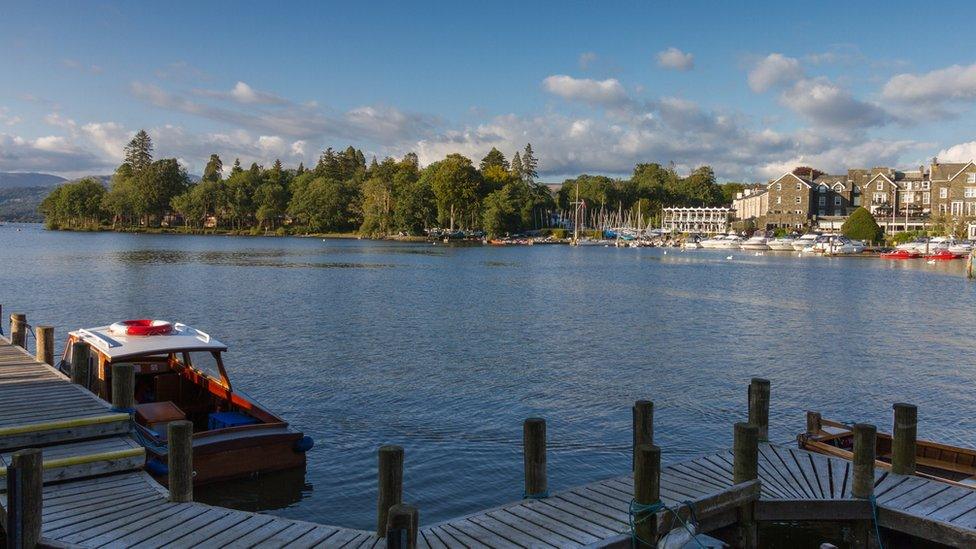'Huge' wildlife loss from sewage plant, charity says
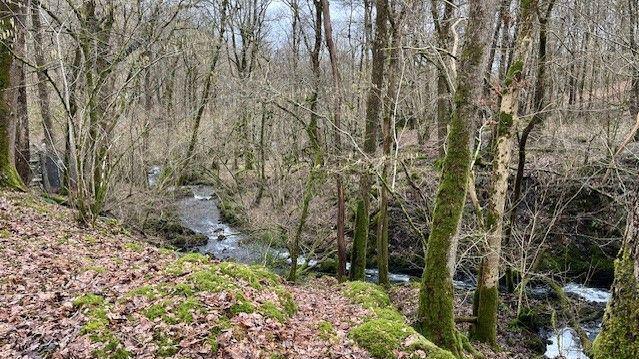
Wilfin Beck saw an average 75% decline of river fly numbers, a charity said
- Published
There has been a "huge" loss of insects in streams because of sewage discharges, according to a conservation charity.
Wildfish surveyed five streams feeding into Windermere in Cumbria and found all saw a loss of wildlife, external downstream of waste water treatment plants.
The Save Windermere campaign said "everything up the food chain gets impacted" when insects start disappearing.
United Utilities, who run the treatment plants, said they operate "in line" with environmental permits but they are "committed to going further and doing more".
The Environment Agency said it has started reviewing permits for the lake to identify if there is any further action they can take.
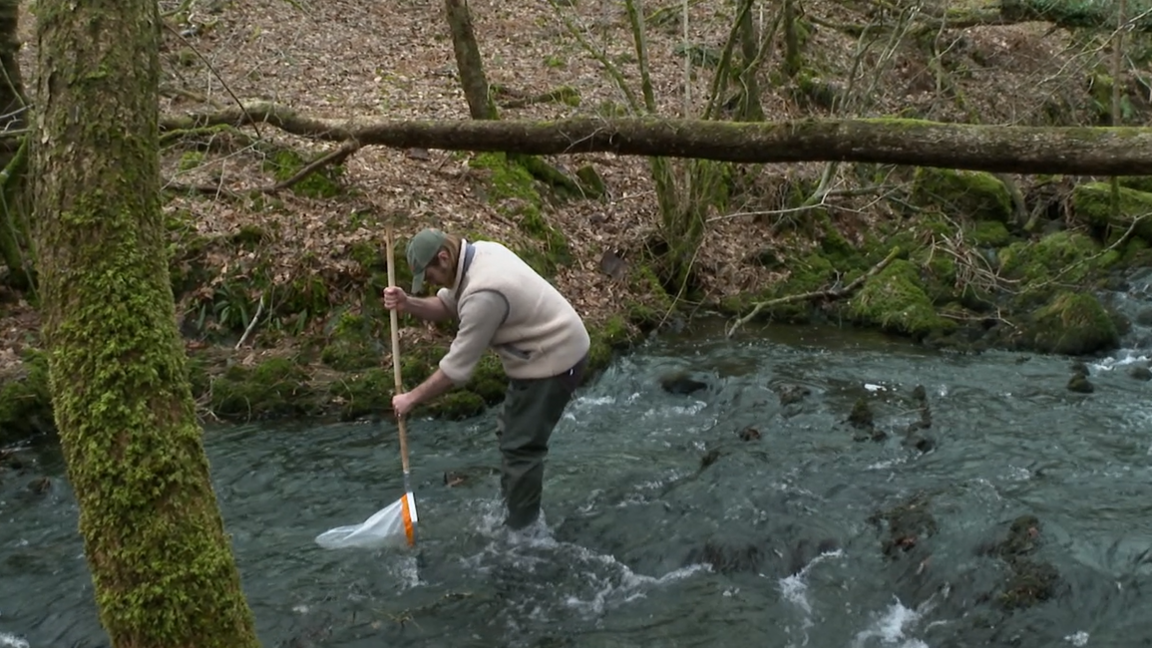
Surveyors used the "three kick sampling method" upstream and downstream
The Far Sawrey waste water treatment works lies on the bank of Wilfin Beck, which then flows into Windermere.
The Wildfish survey found an average 75% decline in river fly numbers downstream of the Far Sawrey works.
Surveyors used the three kick sampling method, which disturbed the riverbed and flow of the water and carried the invertebrates down into the net.
They found a 50% decline in insects in the spring and a 100% decline in autumn.
In autumn, surveyors only found two leeches of a single species downstream, which they said shows a serious deterioration in habitat.
At nearby Cunsey Beck, a site of special scientific interest, there is another treatment works called Near Sawrey.
Here, Wildfish found an average 76% decline in river flies below the Near Sawrey works compared to the same habitat type upstream.
'Damaging'
Matt Staniek from the Save Windermere Campaign said: “We have data to show [pollution] is actively damaging that lower level of the food chain.
"It then starts impacting the fish, which impacts the kingfishers, the otters, the herons.
"Everything up the food chain then gets impacted when we start seeing these insects disappearing and that’s exactly what’s happening here in a UNESCO World Heritage site and a National Park in what should be the most idyllic place for nature in the entire UK.”
'Address pollution'
In a statement, United Utilities said: “Our treatment plants at Near Sawrey and Far Sawrey are two of our smallest sites servicing a population of 370 people which is around 2% of the Windermere catchment.
“Both plants operate in line with their environmental permits but we are committed to going further and doing more.
“We’ve already started investing a further £41m at our sites around Windermere and we working with the Love Windermere Partnership to address all sources of lake pollution including private sewage systems, highways run off and pollution from land.”
United Utilities told the BBC they would be writing to Wildfish to question their selective use of data.
Wildfish also surveyed the River Brathay, River Rothay and Ford Wood Beck.
The Save Windermere Campaign said the Environment Agency is failing to monitor the becks.
An Environment Agency spokesperson said: “The current monitoring network in the Windermere catchment is one of the most extensive in the country.
“We monitor 24 locations for water quality, we have 28 sample locations and the largest number of sondes in a geographical area in England to measure changes in water quality.
“We are committed to further improving the water quality in Lake Windermere and are working closely with several organisations as part of the Love Windermere Partnership to do so.
“As part of this work, we have started the process of reviewing all the permits for this Lake to identify whether there is any further action we can take.”
Wildfish now plans to ask local residents to continue surveying the abundance of insects in the water.
Follow BBC Cumbria on X (formerly Twitter), external, Facebook, external and Instagram, external. Send your story ideas to northeastandcumbria@bbc.co.uk
More stories from BBC North East and Cumbria
- Published4 December 2023
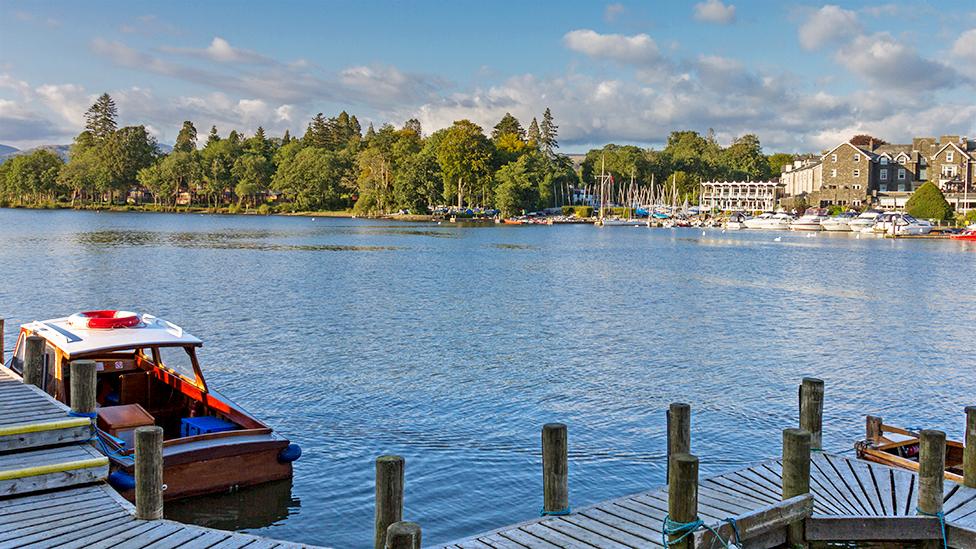
- Published1 November 2023
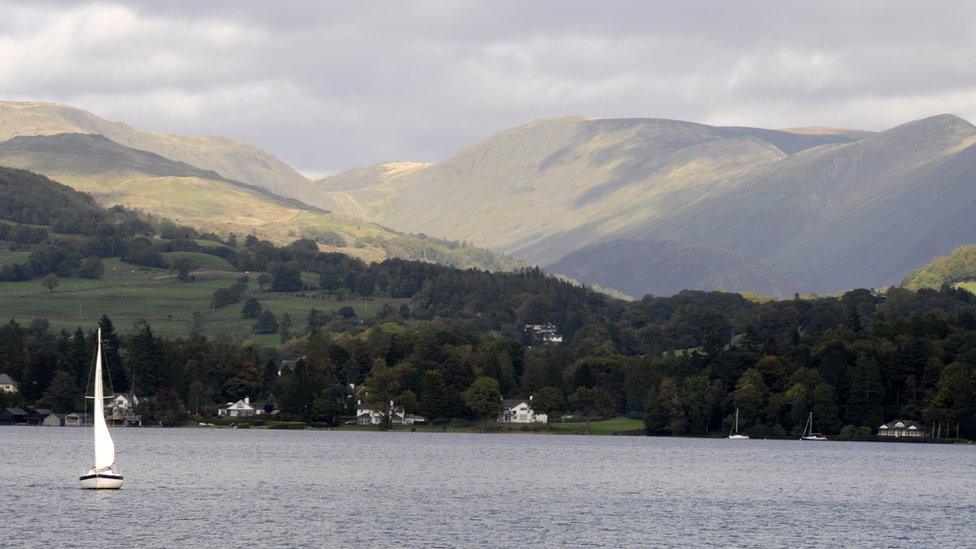
- Published28 September 2022
